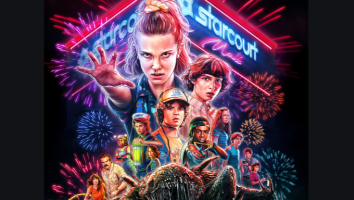At press time, Hollywood remained at a standstill. The Writer’s Guild of America strike has paralyzed tinseltown and transformed primetime TV into a haven for reality series redux (see American Gladiators) and game show buffoonery (see American Gladiators again). It has also cost the US entertainment industry upwards of US$1 billion.
However, while the quill bearers are busy holding picket signs, the animation world – with the exception of primetime fare like Family Guy and American Dad – marches on unhindered. Toon writers, besides those employed by the Fox shows, aren’t members of the WGA. Most non-primetime animation writers are, in fact, repped by The Animation Guild (TAG) and haven’t been part of the strike that began on November 5, 2007 over the sticky issue of how to divvy up the elusive and hard-to-quantify digital rights pie.
TAG’s membership includes almost every job classification involved in the animation process, including writing. The notable exception is voice talent, which is covered by the Screen Actor’s Guild (remember that one). So when it comes to feature films, TAG reps the industry with the major signatory studios such as Walt Disney Pictures, DreamWorks, Warner Bros., Universal and Sony Pictures Animation. A few, including Pixar and Blue Sky, aren’t covered by agreements with any union. What it adds up to is that the finishing touches on all the major animated films slated for release in 2008 and 2009 are being completed without delay.
‘We’ve had several dozen layoffs on the Fox shows, with some more to come over the next few weeks,’ says president of TAG Kevin Koch. ‘That’s the biggest direct effect [of the WGA strike], and it’s cost a small percentage of our membership their jobs.’ However, the rub, Koch points out, is that as the strike continues, some of the shows and movie productions slated to start later in the year could in be sidelined by SAG – its contract expires in June.
‘SAG appears to be about as militant as the WGA,’ says Koch. ‘Since voice work is done before animation in virtually all North American animation productions, the threat that actors won’t be available for voices may cause some studios to delay starting productions in the coming months. This could have a huge impact on our workforce.’
So, for the time being, big-budget animation features will continue to roll out on time. But, don’t think that the industry is turning a blind eye to WGA’s negotiations and the content of the eventual deal that breaks the stalemate.
‘The Guild does not have an official position on the strike,’ says Koch. ‘I will say that we hope the writers get a good deal on the residuals and new media because every entertainment union in Hollywood will end up with something similar.’





















